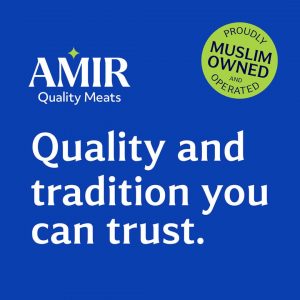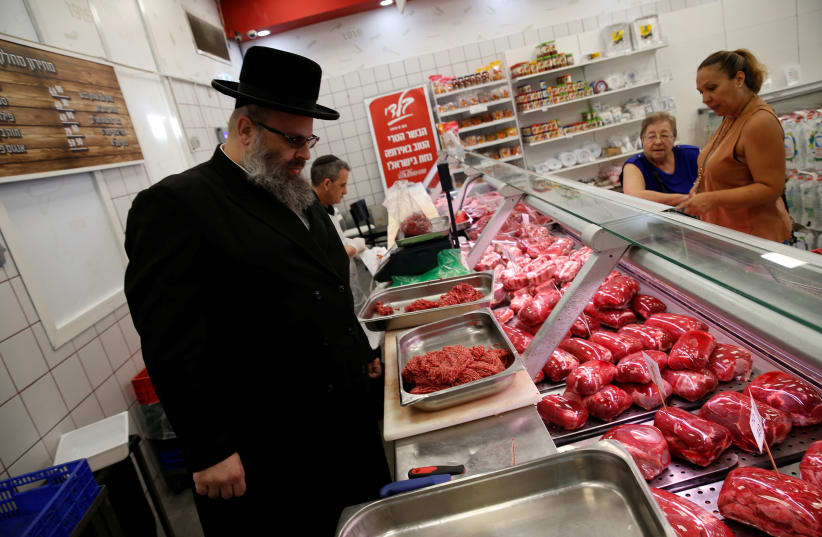cbc.ca
Halal butchers and grocery stores in Edmonton are seeing a surge of popularity — a sign of both a growing Muslim population in the province and a steady trend of non-Muslims seeking out the specially-prepared meat.
“It’s increasing. We can see that almost everyday. People they want to try it first to see the difference. They like it and they keep buying it,” said Khalid Hajer, who owns a halal meat shop in north Edmonton.
“They come here for fresh meat. but they know it’s healthy.”
Meat that is halal, which means “permissible” in Arabic, is prepared according to strict instructions laid out in the Koran. The animal must be healthy and is blessed when it is killed. The animal must be slaughtered by slitting its throat and the blood must be removed from the body.
While the restrictions are due to religious law, Hajer says half of the customers that come into his shop aren’t Muslim. Marina Mediuk has been buying halal meat for 15 years. She thinks the restrictions make the meat healthier and more humane than non-halal meat.
 Khalid Hajer says about half the customers who come into his halel meat shop aren’t Muslim. (CBC)
Khalid Hajer says about half the customers who come into his halel meat shop aren’t Muslim. (CBC)
“To me that’s also the more personal approach to slaughtering the cow, to having your meat and it’s all local. At the big butcher plants it’s done differently,” she said.
“We know that the chickens are fresh and the meat is fresh. And when you say your prayers it doesn’t really matter what religion you are — whether you’re Muslim or not — you take care of it. You are more spiritual about it.”
Great demand, greater scrutiny
The greater demand for halal meat has caused businesses to take notice. A report by the Alberta government shows that Muslim families in the province spend about $31 a week on halal meat — about double the amount most Canadian households spend on meat (partially due to the price difference between halal and non-halal food.)
A product that used to only be found in specialty butchers and ethnic food stores in Alberta, halal meat has made its way to the coolers of large, chain supermarkets. Steakhouses are also increasingly offering halal meat on their menus.
With the increased popularity comes a greater scrutiny. Many are questioning the assumption that halal meat is more humane than food that is prepared other ways.
Rifaa Carter, who eats halal, says she still is careful about who has raised the meat she buys. She says that factory farms and other large meat producers can follow the letter of the restriction on halal meat, while still breaking the spirit behind them.
“The rule in Islam is not only for the meat to be slaughtered in this ritual manner. It’s also about being wholesome and good. And a factory raised cow is not wholesome or good and it’s not humane.”
She says there are options out there for people who are interested in humanely-raised meat. Consumers should be concerned with how their meals are treated during their lifetime, and not just at the time of slaughter, she adds.



